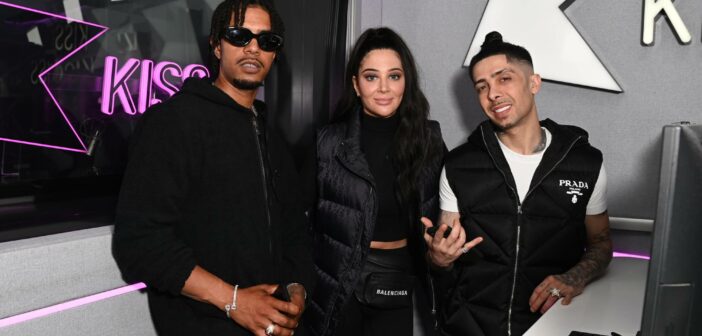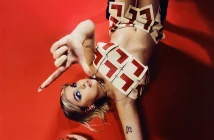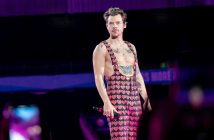Moreso in recent years than ever, it is apparent that nostalgia is the king of entertainment. From movie reboots to some of the year’s biggest music hits sampling beloved classics, it goes without saying that the past remains somewhat of a comfort to people in this post-pandemic world. Though this trend appears to have always been rife within pop groups, to the extent that it is tricky to find one who has not ever reunited in some form…
For my money, the 5, 6, 7, 8 stars Steps have had the most intriguing comeback success of them all with their return in 2017. It is perhaps surprising that originally they were only together for a mere four years, although in that period they amassed two #1 singles alongside a further twelve top 10 hits. While they did first reunite in 2012 for the patchy Christmas album Light Up the World, it was their monster return five years later that returned them to mainstream success. Scared of the Dark marked the group’s first non-Christmas release in sixteen years and saw them drop their slightly “children’s party” sound for a more mature, yet still cheesy, disco-infused vibe. As a result, the subsequent album Tears on the Dancefloor debuted in the UK charts at #2, only kept off the top spot by Ed Sheeran’s pop behemoth Divide. 2020’s follow-up What the Future Holds made clear that Steps’ triumphant comeback wasn’t just a one-off fluke either, also debuting at #2, as did the deluxe ‘Part 2’ edition a year later. That being said, Steps cleverly tapped into the nostalgia market this year with the release of their third greatest hits album in the form of the Platinum Collection earlier this year. It managed to avoid yet another #2 peak, instead hitting the top spot, and has allowed them to join an elite (and somewhat mismatched) club with Stereophonics and The Rolling Stones as the only groups to hit #1 with a new album in three consecutive decades.
While Steps proved that there is a market for ‘nostalgia’ acts to release new music, it does somewhat seem to be an exception to the rule. The Wanted, N-Dubz, and notably JLS all saw diminishing returns with their 2021 comebacks. Despite selling out many of their ‘Beat Again’ tour, dated comeback single Eternal Love only managed to reach #71 in the UK. In fact, a drill single by rappers Switch and J9 managed to peak a little higher at #57 after confusion following it mistakenly being posted on JLS’ streaming pages – awkward! That being said, 2.0 reached a respectable peak of #4 with decent sales and is a fun collection of pop bangers that perfectly balances the line between tapping to the past and utilising current sounds.
It is somewhat of an art for a returning pop group to provide their audience music that still sounds somewhat like their old hits, yet still making it exciting for new fans and more importantly, themselves. The worst example of this balance being completely fumbled is this year’s much-hyped return of pop-rap trio N-Dubz. While you might be thinking “did anyone ask for that?” Clearly, they did! Their upcoming UK tour quickly sold out, and with rap faring far better now in the UK charts than in their heyday, how did they lose such a willing crowd? Lead single Charmer from their upcoming album is a 101 of what not to do in a comeback. It already sounds dated, but not in the late 2000s way that would be cool now, but it just reeks of 2017-era J-Hus and Not3s. It sounded great at the time, but it lives in an awkward space where it is too recent to be cool, yet not old enough to be nostalgic yet. While it debuted high on the streaming charts, steam was lost quickly, and charted at #32 in the UK charts before dropping out of the top 100 after a mere four weeks. Perhaps they can make up for this with future releases, after all, the group’s lovable troublemaker Dappy has had top 40 hits outside N-Dubz as recently as 2019, so it’s certainly not out of the question.
The big factor for a comeback being successful or not is, for me, whether or not that success can last for more than a year or so. While it’s all well and good for the likes of JLS and N-Dubz to sell out their big comeback tours, I fear that future tours would lead to diminishing returns without the well-received new music to back it up. Supergroup McBusted (McFly and Busted, get it?) played a second UK tour with no new music in 2016 to half-empty arenas; but Busted alone have enjoyed strong sales on both new-album supporting tours since their own comeback in 2016, and McFly’s comeback album Young Dumb Thrills peaked at No2, and they have been able to continue selling out arenas both at home and abroad since 2019- as well as what is now becoming the annual tradition of the “One Night Only” reunion show at the O2.
Of course, it would not be right to investigate this question without taking a look at by far the most successful of the lot: Take That. Their 2006 comeback, even without star member Robbie Williams, has seen them scale arguably higher heights than their original 90s run, and has seen them consistently sell out arena tour after arena tour. But what has set them out from their contemporaries, namely the likes of Blue or Westlife? I think it’s almost criminal how underestimated Gary Barlow’s brain is in this regard, he’s clearly a very clever guy. He had the smart idea to have their music grow with their audience. Compare Take That’s 2006 #1 comeback single Patience to Westlife’s Hello My Love from 2019. While both sound as if they were made for the BBC Radio 2 playlist, Patience still sounds fresh sixteen years later and has a bit of a rockier edge that sets them apart from the likes of 90s hits Magic or A Million Love Songs. Meanwhile, Westlife’s comeback single for the album Spectrum wouldn’t feel out of place at all on an early album of theirs, and the only attempts to bring it somewhat up to date result in cringe-inducing lines like “Sometimes I wonder am I enough? / ‘Cause you could have someone without a belly or a temper.” While it is by no means a bad song and had a decent run in the UK charts peaking at #12, it fails to achieve any sort of timelessness quality that would propel them to another decade of mainstream attention, As it is, 2021’s follow-up album Wild Dreams saw them fail to achieve the elusive UK top spot – a rare feat for them up to this point.
It appears the best way for a returning pop group to score further success beyond their nostalgia-fuelled comeback is to capture the attention of a further crowd, perhaps those who had been too young or not aware of the group the first time around. However, is it so bad that groups like JLS and N-Dubz can only capture their audience’s attention once more for a brief period of time? Perhaps not, nostalgia is fickle. While I don’t think they could stage a second UK comeback tour successfully anytime soon, their time will surely come back around again in a few years with more fans eager to relive the sounds of their youth. After all, many 70s & 80s bands now make a career out of this. However, like the Slades and Kajagoogoos of this world, they’ll most likely have to settle for playing local throwback festivals or 500-capacity venues rather than the arena spectacles that seem dominated by those with an evergrowing appeal.




![Midge Ure on Legacy, Live Aid, and his upcoming ‘Catalogue’ tour: ‘The idea that there could be an [AI] Ultravox in 40/50 years from now is terrifying’](https://theedgesusu.co.uk/wp-content/uploads/2024/03/download-214x140.jpg)